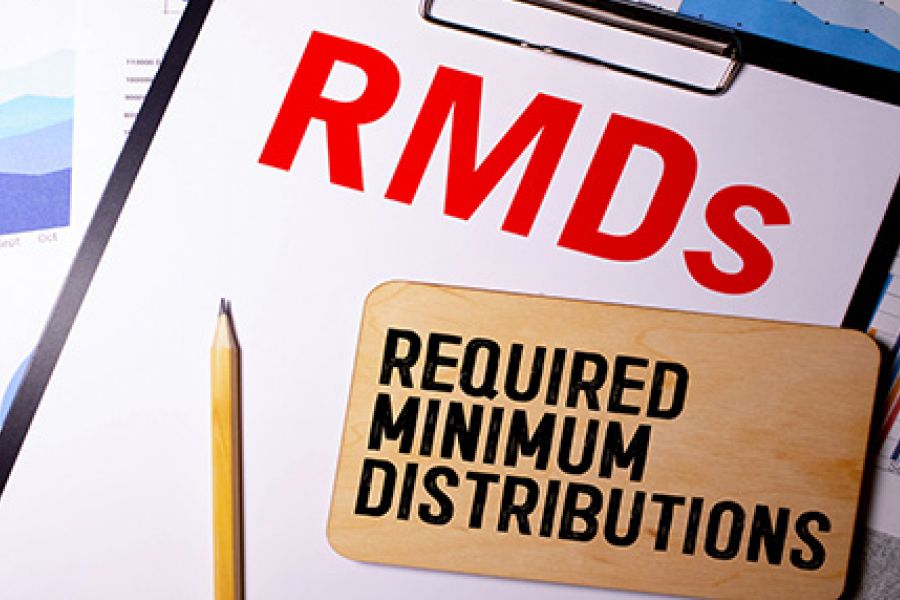If you own a business, you may wonder if you’re eligible to take the qualified business income (QBI) deduction. Sometimes this is referred to as the pass-through deduction or the Section 199A deduction. The QBI deduction is: Available to owners of sole proprietorships, single member limited liability companies (LLCs), partnerships, and S corporations, as well as trusts and estates. Intended to reduce the tax rate on QBI to a rate that’s closer to the corporate tax rate. Taken “below the line.” In other words, it reduces your taxable income but not your adjusted gross income. Available regardless of whether you itemize deductions or take the standard deduction. Taxpayers other than corporations may be entitled to a deduction of up to 20% of their QBI. For 2022, if...

As posted to IRS.gov as Tax Tip 2022-117 on 8/2/2022 A business might pay an independent contractor and an employee for the same or similar work, but there are key legal differences between the two. It is critical for business owners to correctly determine whether the people providing services are employees or independent contractors. An employee is generally considered anyone who performs services, if the business can control what will be done and how it will be done. What matters is that the business has the right to control the details of how the worker's services are performed. Independent contractors are normally people in an independent trade, business or profession in which they offer their services to the public. Independent contractor vs. employee Whether a worker is an independent...
As posted to the Bellavia Blatt YouTube Channel on 11/18/22, and the Fixed Ops Roundtable YouTube Channel on 11/18/22 (Run Time: 14 min, 59 sec) As EVs continue to represent a greater percentage of total new vehicle sales, ongoing challenges continue to present themselves forcing automobile dealers to combat the continued erosion of their profits. In this clip, automotive attorney Len Bellavia sits down virtually with Ted Ings at the "Fixed Ops Roundtable" to discuss a number of current issues impacting dealers. On the subject of over-the-air (OTA) updates, Len reports that GM and Stellantis have announced that the transition to OTAs will cost manufacturers $25 billion per year in lost revenues which will be "coming out of the hides of the fixed ops department of these dealerships". ...
As you may know, you can’t keep funds in your traditional IRA indefinitely. You have to start taking withdrawals from a traditional IRA (including a SIMPLE IRA or SEP IRA) when you reach age 72. The rules for taking required minimum distributions (RMDs) are complicated, so here are some answers to frequently asked questions. What if I want to take out money before retirement? If you want to take money out of a traditional IRA before age 59½, distributions are taxable and you may be subject to a 10% penalty tax. However, there are several ways that the 10% penalty tax (but not the regular income tax) can be avoided, including to pay: qualified higher education expenses, up to $10,000 of expenses if you’re a first-time homebuyer and...
Checkster, a reference checking company, has found that 78% of job candidates either misrepresent or consider misrepresenting themselves during the hiring process. And a survey by career advice company ResumeLab reveals that 56% of applicants either lied or “stretched the truth” in recent interviews. Findings of other studies vary, but the takeaway is generally consistent: Don’t assume résumé claims or interview answers are truthful. Verify applicant representations and consider performing formal background checks. Why it matters Some job candidate misrepresentations are relatively benign. A Monster “Future of Work” study finds that many applicants (60%) say they’ve mastered a skill when, in reality, their knowledge is basic. A beginner level Excel user may claim mastery in the software, but if the job calls for little or no Excel...
If you’re launching a new business venture, you’re probably wondering which form of business is most suitable. Here is a summary of the major advantages and disadvantages of doing business as a C corporation. A C corporation allows the business to be treated and taxed as a separate entity from you as the principal owner. A properly structured corporation can protect you from the debts of the business yet enable you to control both day-to-day operations and corporate acts such as redemptions, acquisitions and even liquidations. In addition, the corporate tax rate is currently 21%, which is lower than the highest noncorporate tax rate. Following formalities In order to ensure that a corporation is treated as a separate entity, it’s important to observe various formalities required by your state....
The overall stock market has been down during 2022 but there have been some bright spots. As year-end approaches, consider making some moves to make the best tax use of paper losses and actual losses from your stock market investments. Tax rates on sales Individuals are subject to tax at a rate as high as 37% on short-term capital gains and ordinary income. But long-term capital gains on most investment assets receive favorable treatment. They’re taxed at rates ranging from 0% to 20% depending on your taxable income (inclusive of the gains). High-income taxpayers may pay an additional 3.8% net investment income tax. Sell at a loss to offset earlier gains Have you realized gains earlier in the year from sales of stock held for more than one year...
These days, most businesses have some intangible assets. The tax treatment of these assets can be complex. What makes intangibles so complicated? IRS regulations require the capitalization of costs to: Acquire or create an intangible asset, Create or enhance a separate, distinct intangible asset, Create or enhance a “future benefit” identified in IRS guidance as capitalizable, or “Facilitate” the acquisition or creation of an intangible asset. Capitalized costs can’t be deducted in the year paid or incurred. If they’re deductible at all, they must be ratably deducted over the life of the asset (or, for some assets, over periods specified by the tax code or under regulations). However, capitalization generally isn't required for costs not exceeding $5,000 and for amounts paid to create or facilitate the creation of...
The 30-year anniversary of Daubert v. Merrell Dow Pharmaceuticals Inc. (509 U.S. 579) will be coming up in 2023. This decision officially made federal judges the “gatekeepers” of expert evidence against “junk science.” Landmark case In 1993, Daubert established a two-pronged test for admissibility under Rule 702 of the Federal Rules of Evidence: An expert’s methodology must be 1) reliable, and 2) relevant. This case also identified four nonexclusive factors to consider in determining the reliability of an expert’s theory or technique: Has it been tested, and can it be tested? Has it been subject to peer review or publication? What’s its known or potential error rate? Is it generally accepted in the relevant scientific or technical community? The discounted cash flow method is an example of a...
The holiday season is here and many people plan to donate to their favorite charities or give money or assets to their loved ones before the end of the year. Here are the basic tax rules involved in these transactions. Donating to charity In 2022, in order to receive a charitable donation write-off, you must itemize deductions on your tax return. What if you want to give gifts of investments to your favorite charities? There are a couple of points to keep in mind. First, don’t give away investments in taxable brokerage accounts that are currently worth less than what you paid for them. Instead, sell the shares and claim the resulting capital loss on your tax return. Then, give the cash proceeds from the sale to charity....
- 1
- 2
- 3
- 4
- 5
- 6
- 7
- 8
- 9
- 10
- 11
- 12
- 13
- 14
- 15
- 16
- 17
- 18
- 19
- 20
- 21
- 22
- 23
- 24
- 25
- 26
- 27
- 28
- 29
- 30
- 31
- 32
- 33
- 34
- 35
- 36
- 37
- 38
- 39
- 40
- 41
- 42
- 43
- 44
- 45
- 46
- 47
- 48
- 49
- 50
- 51
- 52
- 53
- 54
- 55
- 56
- 57
- 58
- 59
- 60
- 61
- 62
- 63
- 64
- 65
- 66
- 67
- 68
- 69
- 70
- 71
- 72
- 73
- 74
- 75
- 76
- 77
- 78
- 79
- 80
- 81
- 82
- 83
- 84
- 85
- 86
- 87
- 88
- 89
- 90
- 91
- 92
- 93
- 94
- 95
- 96
- 97
- 98
- 99
- 100
- 101
- 102
- 103
- 104
- 105
- 106
- 107
- 108
- 109
- 110
- 111
- 112
- 113
- 114
- 115
- 116
- 117
- 118
- 119
- 120
- 121
- 122
- 123
- 124
- 125
- 126
- 127
- 128
- 129
- 130
- 131
- 132
- 133
- 134
- 135
- 136











